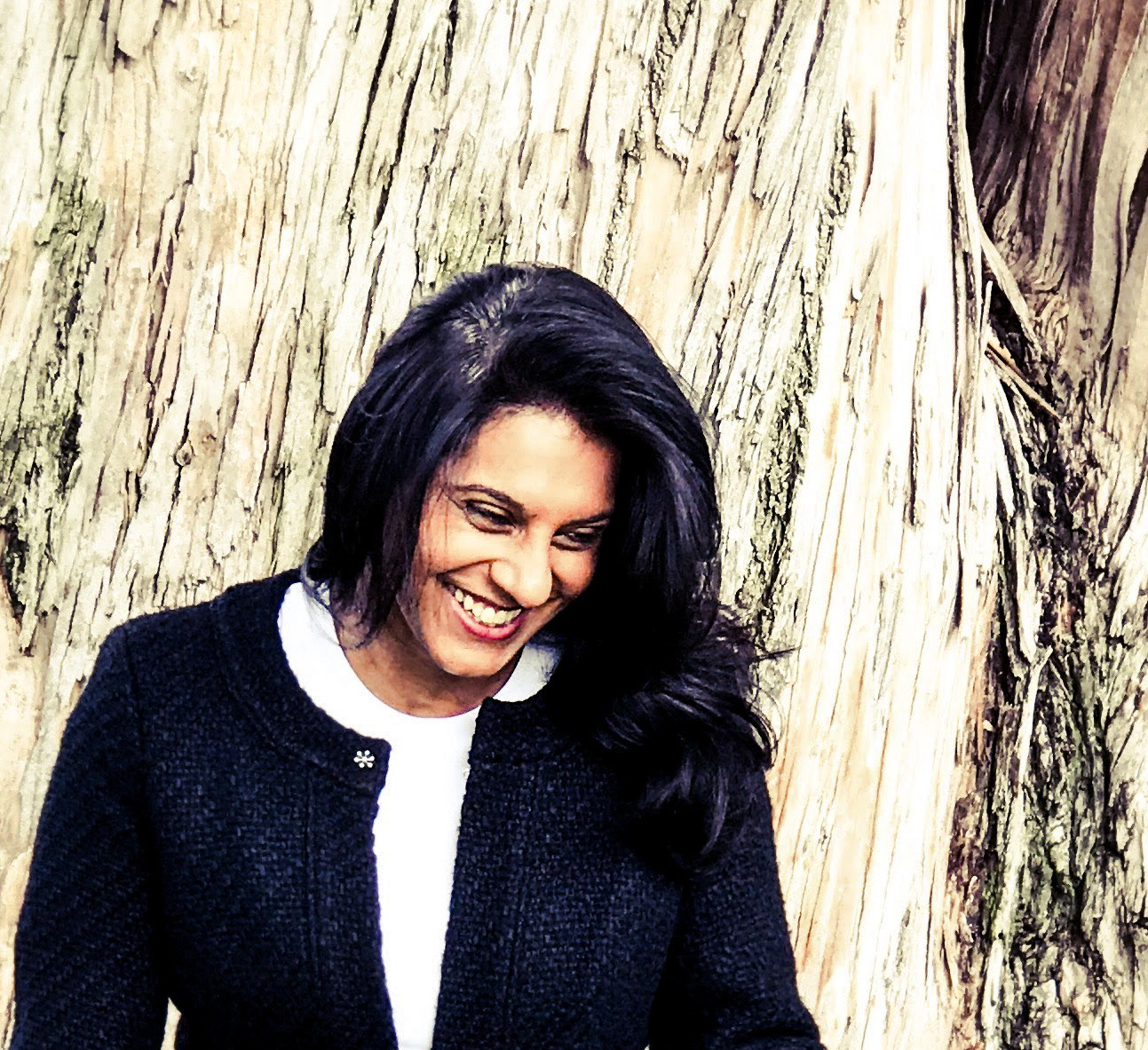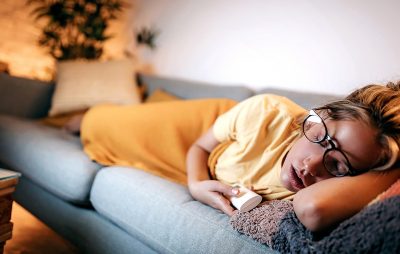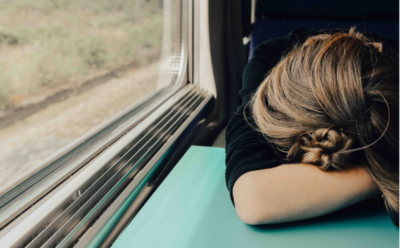Sleep Myths Debunked
- by Sharon Brandwein
- Updated: December 13, 2023
Table of Contents

A glass of wine helps you sleep.
You need eight hours of sleep per night.
Older people need less sleep.
These are just a few of the most common sleep myths making the rounds online—and if you’re one of the millions who regularly hit up Google for solutions to whatever ails you and your sleep, chances are you’ve come across all of them. While the internet holds a wealth of helpful knowledge, the glut of misinformation available can make discerning fact from fiction a daily challenge. Read on as we investigate some of the more common sleep myths in circulation and finally put them to rest.
Note: The content on Sleepopolis is meant to be informative in nature, but it shouldn’t be taken as medical advice, and it shouldn’t take the place of medical advice and supervision from a trained professional. If you feel you may be suffering from any sleep disorder or medical condition, please see your healthcare provider immediately.
Long Story Short
- Alcohol may help you fall asleep faster, but it interferes with quality sleep as it metabolizes throughout the night.
- Sleeping in on the weekend won’t help you catch up on the sleep you lost during the week.
- You don’t necessarily need eight hours of sleep per night. Everyone is different, and sleep quality matters, too.
Myth: Alcohol Helps You Sleep
Fact: Alcohol helps you fall asleep faster but disrupts your sleep as the night goes on.
Dr. Michael Grandner, an internationally recognized sleep expert and health advisor to Sleep Reset, says, “Alcohol is probably the most-used sleep drug in the world.” And while Grandner notes that a nightcap can certainly help you fall asleep faster and might even make your sleep a little deeper initially, he cautions that the tables turn quickly as the night goes on. “As your system processes the alcohol, it actually gets converted to another molecule that can act as a stimulant,” Grandner says. “People who use alcohol to help them sleep are more likely to find their sleep shallow and broken up. Some may even find that they wake up too early and have a hard time getting back to sleep.” (1)
Dr. Monique May, MD, MHA Family Medicine, medical advisor for Aeroflow Sleep, tells us that “alcohol disrupts sound and restorative sleep and negatively impacts REM (and other phases of sleep), disrupting sleep architecture. (2)” “Ultimately, this can lead to fatigue the next day and contribute to the effect of hangovers,” she says.
Myth: Older People Need Less Sleep
Fact: Older people don’t need less sleep but may get less due to age-related health issues.
“It’s a common misconception that as we age, we need less sleep,” says Dr. Amanda Finegold-Swain, a physician in family medicine at Penn Medicine. “The fact is, the amount of sleep you need in early and middle adulthood is the same amount you will require as you head into your later years. For most of us, the amount of sleep we need stabilizes in our early 20’s. So, if someone needs seven hours a night as an adult, that isn’t likely to change as they age.”
What may change, however, is timing. “In contrast to adolescents, some older adults experience a need to sleep earlier and wake earlier,” Swain says. Moreover, while older adults don’t need more sleep, they may end up getting less sleep as age-related interruptions become more common. Frequent nighttime waking, daytime napping, nocturia (frequent nighttime urination), and medications that interfere with sleep are common sleep disruptors among the aging population. (3)
Myth: Teenagers Sleep Too Much
Fact: Teens typically don’t get enough sleep.
According to Heather Turgeon and Julie Wright, psychotherapists and authors of Generation Sleepless, “Teenagers are the most sleep-deprived population in human history.” “Teens need an average of 9.25 hours of sleep per night, but actually get more like 6.5,” Turgeon and Wright tell us. “The adults around them may notice teens falling asleep on their desks or sleeping until noon on the weekends because they carry such an enormous and ongoing amount of sleep debt.”
“Teen brain clocks are also set later than ours, by an average of two hours,” the doctors add. (4) “That means they will naturally stay up later and sleep in later than the rest of us.” So, while sleeping until noon often looks like teenagers are sleeping a lot, it’s actually just a sign that their bodies are leaning into advanced circadian timing and a desperate attempt to make up for that lost sleep.
Myth: You Can Catch up on Sleep on Weekends
Fact: Sleeping in on the weekends may reduce daytime sleepiness, but it doesn’t undo the damage of not getting enough sleep each night.
Turgeon and Wright tell us that while “sleeping in on the weekends might make you feel better, it doesn’t turn back time and erase the toll sleep deprivation takes on your body during the week.” “Inflammation, dysregulated metabolism, cognitive impairment, and so forth will still be there when you wake up,” they say. (5) (6) A better approach, says Turgeon and Wright, “would be to add in 30 minutes of sleep every night during the week.”
Myth: Your Body Can Get Used to Little Sleep
Fact: You might feel as if your body is adjusting to sleep debt, but it’s often to the detriment of your health.
“Most people can tolerate one, two, or even three nights of sleep deprivation without feeling too much of an effect,” says Finegold-Swain. “I think of this as our sleep deprivation tolerance. We can all put off sleep for some amount of time, and the tolerance can vary widely from person to person. This ability often is enhanced in particularly stressful situations, like mothers giving birth over 24-36 hours, doctors having to take long shifts, etc., but outside of those kinds of situations, people cannot get used to insufficient sleep.”
With prolonged sleep deprivation, Finegold-Swain says, “We’ll start to move more slowly, have delayed reaction times, feel more irritable, and our ability to do complicated tasks will suffer as well. (2) For better or worse, you cannot ‘train’ your body to permanently need less sleep.”
Myth: Dreaming Only Happens During REM Sleep
Fact: REM sleep is when most dreaming occurs, but dreams can also happen during other sleep stages.
“Dreaming mostly happens during REM sleep, but dreams can occur in any stage of sleep,” says Grandner, who notes that the differences might lie in content. “Non-REM dreams are more simple and tend to focus on a single image or set of actions. They tend to be less emotional and can be more of a re-enacting of a waking experience. For example, if you start a new woodworking hobby, a non-REM dream might have you working with tools at the bench, whereas a REM dream may have you sculpting statues for a museum out of marble or something more complex.”
Myth: You Must Sleep Eight Hours Each Night
Fact: Sleep needs vary from person to person.
While some people need seven to eight hours of sleep per night, others seem to function just fine on six, and some may need as much as 10—essentially sleep needs vary from person to person. We’ll also add here that quantity is not the only marker for adequate sleep—quality counts, too. If you’re frequently waking up and getting out of bed throughout the night, your eight hours won’t be as restorative as an uninterrupted block of sleep of the same length.
“Sleep is important not just for rest but for optimal brain health including memory formation, hormone regulation, and much more,” says May. “Physically, adequate sleep helps decrease the risk of developing high blood pressure, cardiovascular disease, diabetes, depression, and obesity.” (7) (8)
So, how do you know if you’re getting enough sleep? May says, “If you feel rested when you wake up, and don’t feel like you need a nap during the day, or have to depend on caffeine (or other stimulants) in some form, then you may be getting all the sleep you need. “
Myth: Sleeping With the Light on Is No Big Deal
Fact: Sleeping with the light on degrades your sleep quality and puts you at risk for a host of adverse health outcomes.
Good sleep hygiene dictates that the optimal environment for sleep is one that’s cool, quiet, and dark. Keeping the lights on while you sleep not only disrupts your sleep cycles but can also cause you to wake more frequently at night and lower the overall quality of your sleep. Beyond the disruption to your sleep, sleeping with the lights on has been linked to other serious health issues like depression, obesity, and hypertension. (9)
Myth: Napping Makes up for Not Sleeping Enough at Night
Fact: Naps can be beneficial, but they’re no replacement for a good night’s sleep.
“Brief naps (10-20 minutes) can be beneficial if you do not get enough sleep at night,” says May. “However, napping does not make up for not getting a good night’s sleep.”
May reminds us that there’s a lot of biological housekeeping and active repair going on while we sleep, and when you consider the fact that one sleep cycle alone is around 90 to 110 minutes, it’s easy to see why napping does not measure up to a good night’s sleep. “You don’t get to spend enough time in these important cycles,” she says. (10)
Moreover, May notes that late afternoon naps (for example, after 3 p.m.) can short-circuit your sleep drive and negatively impact your ability to fall asleep later at night. (11) The blow naps deliver to our sleep drive is precisely why naps are a big no-no for anyone struggling with insomnia.
Myth: Yawning Means You’re Tired
Fact: Yawning is normal and not necessarily indicative of being tired.
Dr. Chester Wu, a double board-certified doctor in Psychiatry and Sleep Medicine, tells us that theories abound as to why we yawn. “One theory suggests yawning helps oxygenate the brain (although this has been debated),” Wu says. “Another theory is that yawning helps regulate the brain’s temperature by facilitating heat dissipation. And another suggests it plays a role in communication or synchronizing group alertness (AKA, yawns are contagious).” (12)
While none of the theories indicate that yawning has any connection to being tired, Wu notes that “excessive yawning, which is defined as yawning three or more times in 15 minutes, may have a firmer connection with sleep debt or being tired from a lack of sleep.” (12)
“Yawning 20 to 28 times today is normal, and the occasional yawn is nothing to worry about,” he says. (12) “However, if you find yourself constantly yawning and experiencing other symptoms of sleep deprivation, such as a lack of energy, irritability or moodiness, and increased anxiety, try to get some more sleep and see if that resolves the issue.” If yawning remains persistent after sleep and rest, Wu suggests “speaking to your healthcare provider to rule out other medical issues or medications contributing to excessive yawning or your sleep debt.”
The Last Word From Sleepopolis
Despite all that we know about sleep, it can still be a subject that’s shrouded in mystery, which is undoubtedly why so many myths persist. If you have questions about healthy sleep and how to improve the quality of yours, there’s no harm in going online for answers—just be sure to use a reliable, medically reviewed source (like Sleepopolis!) for your information.
Sources
- He S, Hasler BP, Chakravorty S. Alcohol and sleep-related problems. Curr Opin Psychol. 2019;30:117-122. doi:10.1016/j.copsyc.2019.03.007
- Robbins R, Grandner MA, Buxton OM, et al. Sleep myths: an expert-led study to identify false beliefs about sleep that impinge upon population sleep health practices. Sleep Health. 2019;5(4):409-417. doi:10.1016/j.sleh.2019.02.002
- Scullin MK. Do Older Adults Need Sleep? A Review of Neuroimaging, Sleep, and Aging Studies. Curr Sleep Med Rep. 2017;3(3):204-214. doi:10.1007/s40675-017-0086-z
- Wolfson, A. R., & Carskadon, M. A. (1998). Sleep Schedules and Daytime Functioning in Adolescents. Child Development, 69(4), 875–887. https://doi.org/10.2307/1132351
- Garbarino, S., Lanteri, P., Bragazzi, N.L. et al. Role of sleep deprivation in immune-related disease risk and outcomes. Commun Biol 4, 1304 (2021). https://doi.org/10.1038/s42003-021-02825-4
- Csipo, T., Lipecz, A., Owens, C., et al. Sleep deprivation impairs cognitive performance, alters task-associated cerebral blood flow, and decreases cortical neurovascular coupling-related hemodynamic responses. Sci Rep 11, 20994 (2021). https://doi.org/10.1038/s41598-021-00188-8
- Cooper CB, Neufeld EV, Dolezal BA, Martin JL. Sleep deprivation and obesity in adults: a brief narrative review. BMJ Open Sport Exerc Med. 2018;4(1):e000392. Published 2018 Oct 4. doi:10.1136/bmjsem-2018-000392
- Evbayekha EO, Aiwuyo HO, Dilibe A, et al. Sleep Deprivation Is Associated With Increased Risk for Hypertensive Heart Disease: A Nationwide Population-Based Cohort Study. Cureus. 2022;14(12):e33005. Published 2022 Dec 27. doi:10.7759/cureus.33005
- Corliss, J. (2022, October 1). Light during sleep linked to conditions that harm the heart. Harvard Health. https://www.health.harvard.edu/heart-health/light-during-sleep-linked-to-conditions-that-harm-the-heart
- Patel AK, Reddy V, Shumway KR, et al. Physiology, Sleep Stages. [Updated 2022 Sep 7]. In: StatPearls [Internet]. Treasure Island (FL): StatPearls Publishing; 2024 Jan-. Available from: https://www.ncbi.nlm.nih.gov/books/NBK526132/
- Mantua J, Spencer RMC. Exploring the nap paradox: are mid-day sleep bouts a friend or foe?Sleep Med. 2017;37:88-97. doi:10.1016/j.sleep.2017.01.019
- Arquivos de Neuro-Psiquiatria. SciELO. (n.d.). https://www.scielo.br/j/anp/
Grandner, Michael. Personal Interview. October 5, 2024
May, Monique. Personal Interview. October 5, 2024
Turgeon, Heather, Wright, Julie. Personal Interview. October 5, 2024
Finegold-Swain, Amanda. Personal Interview. October 5, 2024
Wu, Chester. Personal Interview. October 5, 2024
Subscribe Today!
Get the latest deals, discounts, reviews, and giveaways!



